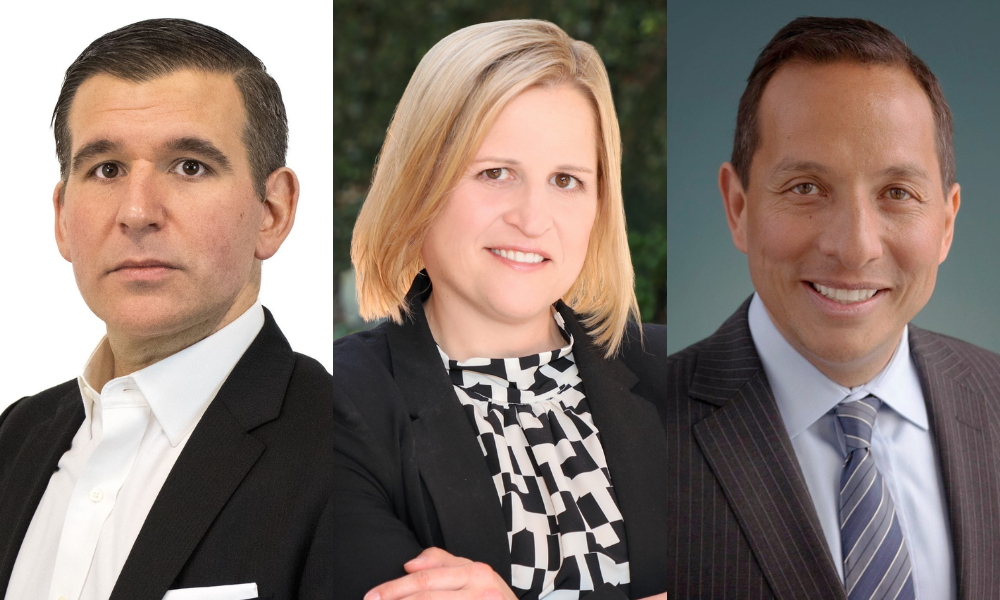

President Trump can "blame Canada," as the song says, for Monday morning’s market drop of more than 1.5 percent in the wake of his 25 percent tariffs on their US exports. Mexico too, for that matter.
Financial advisors, however, will have nobody else to blame should a full blown North American trade war damage client portfolios. And that’s why they are doing their homework in advance.
Will Sterling, chief investment Officer at TritonPoint Wealth, for example, did have tariff risk on his “proverbial bingo card” heading into 2025, so he was not altogether shocked by Friday’s White House announcement. And while he is not making any significant tactical shifts in the near term, he is monitoring how tariffs impact different sectors, industries and companies.
“We believe toys, auto parts, and consumer electronics are more exposed than apparel, which is one example of some of our work that has impacted our investment decision making since mid-November,” Sterling said, adding another important consideration is the dollar and the potential impact on multinationals.
Elsewhere, Victoria Greene, chief investment officer at G Squared Private Wealth, a partner firm of Sanctuary Wealth, sees this recent back-and-forth more as a “spat” than a long-term shift. In her view, the Trump administration has employed this “carrot/stick approach” before and it usually ends up being less onerous than it originally sounds.
“We are prepared to change that thesis if this proves to be sticky as it would be a fundamental shift of supply chains and earnings and would want to de-risk and bunker in safer assets such as gold and Treasuries,” said Greene, noting that she too will be watching the strength of the dollar and its effect on multinational earnings.
“There are multiple scenarios that may play out, and for now, we are not pre-panicking and relying on our historical precedence that the market is not the economy, and we are not prepared to rip up our bullish thesis quite yet,” Greene said.
Similarly, Rick Wedell, president and chief investment officer at RFG Advisory, said this type of behavior from the White House was to be expected, as evidenced by Trump’s first term. As a result, he said the tariffs may be “somewhat short lived” for Canada and Mexico as those countries work to address whatever grievances they can to have the tariffs removed or reduced.
He said China may be far less willing to participate in that type of negotiation, and so those tariffs may remain in place longer. Still, he’s not making any moves based on the recent news.
Along the same lines, Gene Goldman, chief investment officer at Cetera Financial Group, believes the “trade spat will be resolved fairly quickly” and will not end the bull market. His worst-case scenario is a market correction if the situation remains overheated for too long.
“If we use 2018 as a base case, any market sell-off could be short-lived,” said Goldman. “After the 2018 tariffs, equity markets returned to pre-tariff levels by mid-2019. Furthermore, with $24 trillion of cash on the sidelines in money-market assets and savings accounts waiting for better valuations, any pullback could be deemed a buying opportunity.”
Goldman added that he was already prepared for the pullback in equity markets due to high valuations, extreme market concentration, and an uncertain Fed.
“In anticipation of a pullback, we have been overweight asset classes less reliant on imports, such as small caps, and those with lower valuations. We have also added liquid alternatives to our portfolios to mitigate some market volatility,” Goldman said.

Summit Financial unveiled a suite of eight new tools, including AI lead gen and digital marketing software, while MassMutual forges a new partnership with Orion.

A new analysis shows the number of actions plummeting over a six-month period, potentially due to changing priorities and staffing reductions at the agency.

The strategic merger of equals with the $27 billion RIA firm in Los Angeles marks what could be the largest unification of the summer 2025 M&A season.

Report highlights lack of options for those faced with emergency expenses.

However, Raymond James has had success recruiting Commonwealth advisors.
Orion's Tom Wilson on delivering coordinated, high-touch service in a world where returns alone no longer set you apart.
Barely a decade old, registered index-linked annuities have quickly surged in popularity, thanks to their unique blend of protection and growth potential—an appealing option for investors looking to chart a steadier course through today's choppy market waters, says Myles Lambert, Brighthouse Financial.
